Food For All Stages Of CKD
As a society, we are blessed with an abundance of food. But for those suffering from chronic kidney disease (CKD), the right nutrition is essential to managing their condition and living a long and healthy life.
Before long, you'll be able to check out this chronic kidney disease diet food list and choose what works best for you!
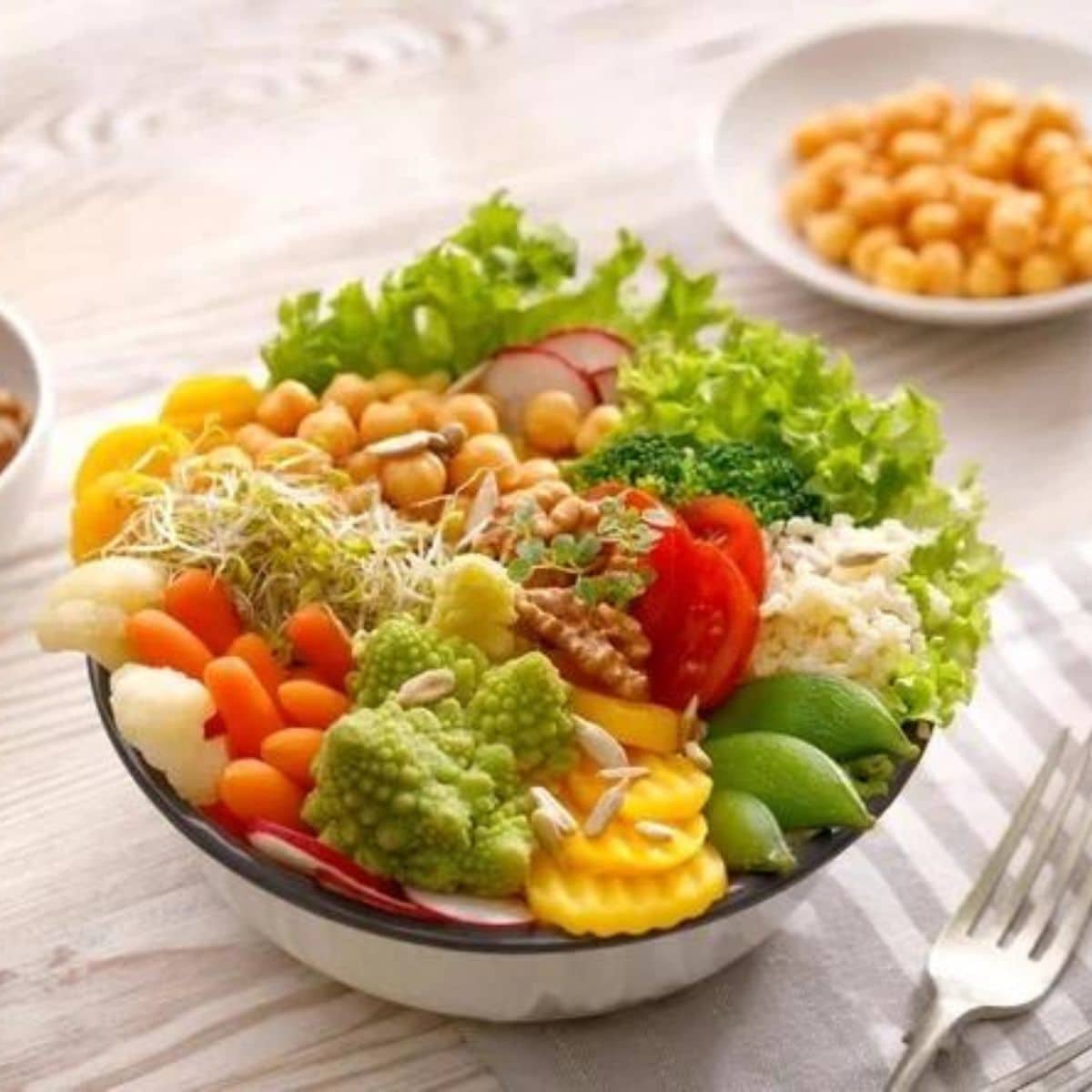
The challenge becomes how to choose foods that will meet the unique dietary needs of this population.
In this article, we’ll explore ‘Food For All Stages Of CKD, including what types of food should be eaten in each stage, as well as tips for creating balanced meals that provide all the nutrients necessary for good health.
For patients with CKD, it is important to eat the right foods. This means you may need to follow a more restrictive diet, but there is more to it than that.
A healthy diet isn't just about restricting food items; it is also focusing on the foods that you should eat.
In many cases, the right foods can actually help you by offering your body vitamins, minerals, and antioxidants. In other words, what you eat is just as important as what you omit from your diet.
The first step in selecting appropriate foods when CKD is present is understanding which stage of the condition you or your loved one is experiencing.
There are five stages of CKD ranging from mild kidney damage with normal filtration levels to complete kidney failure requiring dialysis or transplantation.
Knowing which stages of chronic kidney disease someone is at helps guide decisions about what kinds of food they should eat on a regular basis.
Finally, once the appropriate type of foods have been identified it’s important to create meals that offer balanced nutrition while limiting sodium, phosphorus and potassium intake—three key ingredients that can cause further damage if consumed in excess amounts by people with CKD.
We’ll discuss some strategies for achieving these goals so readers can make informed choices about eating habits moving forward.
Jump to:
- Definition Of Chronic Kidney Disease
- Dietary Guidelines For Each Stage Of CKD
- What Are The Macronutrients And Micronutrients
- Fluid Intake Requirements
- Foods To Avoid
- Weight Management Considerations
- Sodium Intake Restrictions
- Protein Intake Recommendations
- Vitamin And Mineral Supplements
- Benefits Of A Plant-Based Diet
- How To Monitor Food Choices
- Using A Meal Plan To Manage Your Food
- Frequently Asked Questions
- You Can Enjoy Your Favorite Delicious and Healthy Foods
Definition Of Chronic Kidney Disease
Do you want a disease that can take away your quality of life without advance warning? Then CKD is the perfect option.
This chronic illness affects millions worldwide and can become fatal if left untreated. It's time to find out what CKD really is, so let’s get started!
Everything that you eat or drink eventually gets processed by your kidneys. The byproducts of each ingested item have the potential to cause a rapid decline in kidney function, or cause you significant discomfort as your body is unable to process them.
CKD is defined as the gradual loss of renal function over time due to damage or disease in one or both kidneys.
The kidney plays an essential role in bodily functions such as waste product removal and fluid balance; when it begins to fail, these processes suffer greatly.
People with CKD may experience symptoms like fatigue, nausea, reduced appetite, confusion and even depression. They may also require dialysis treatments or other forms of medical intervention for successful management of their condition. There are sure-fire signs and symptoms of kidney failure.
But it isn't all bad news - there are ways to maintain a healthy nutritional status while living with CKD.
Eating a balanced diet full of nutrient-rich foods helps support overall health and reduce some complications associated with this chronic illness. Understanding which foods are beneficial at each stage of CKD will help people manage their condition more effectively.
With proper nutrition, exercise, and treatment plans tailored specifically for them, those affected by CKD have hope for improved quality of life despite their diagnosis.
Dietary Guidelines For Each Stage Of CKD
As someone living with CKD advances through the five stages depending on the glomerular filtration rate, they will need to make certain dietary adjustments to help maintain their kidney health.
What you can and should eat will depend a lot on what stage of CKD you are currently in. There are some foods, however, that are good for all stages of CKD. Of course, you should speak to your doctors about any changes that you plan to make to your diet and lifestyle, as your specific case may differ from others.
So discuss your diet with your own doctor to know for sure what foods will be best for you specifically. Here are some general renal diet guidelines that should be taken into consideration for each stage of CKD:
- Avoid excess sodium intake
- Increase consumption of fruits and vegetables
- Limit fluid intake as needed
- Monitor protein, potassium, and phosphorus levels in food
These tips can serve as a starting point when making dietary changes. When it comes to following an appropriate CKD Diet plan, however, it’s best to consult a doctor or nutritionist who specializes in this area.
They can provide additional information on nutrient amounts that may be necessary depending on the severity of one’s condition.
It’s important to note that even though following a special diet might seem restrictive at first, there are still plenty of delicious meals available that meet the required criteria.
Some foods that are recommended in all stages of kidney disease are: Onions, Apples, Cranberries, Blueberries, Fish, Red Bell Peppers, Cauliflower, Mushrooms, Egg Whites, Olive Oil, and Applesauce.
With recipes centered around these low-potassium and low-sodium foods, being readily accessible online, options are plentiful for those looking for creative ways to incorporate healthy ingredients into their meal plans. Following a low sodium kidney diet gets easier over time.
By using these kidney diet meal prepping tips in combination with lifestyle modifications such as exercise and stress reduction techniques, people living with CKD can improve their overall quality of life while keeping healthy kidneys.
For More Recipes and Ideas --->> Get Your Free Meals and Recipes That Are Perfect for Pre-Dialysis Diets, Pre-Dialysis with Diabetes, or Dialysis Diets.
What Are The Macronutrients And Micronutrients
Nourishment is like a river, its flow connecting us to the world of health and wellbeing.
For those who suffer from CKD, understanding what macronutrients and micronutrients are required for optimum health can open up an entire new realm of possibility.
A balanced diet consisting of protein, fats, carbohydrates, vitamins, and minerals is essential in order to achieve optimal health while living with CKD.
A macronutrient breakdown should include adequate amounts of all three categories. It’s recommended that approximately 10-15% of daily caloric intake come from proteins such as meat, fish, eggs, legumes, or dairy products.
It’s also important to ensure adequate dietary protein intake without causing undue stress on the kidneys. Patients may need to consult their physician about supplementing with proteins or other nutrients that help manage muscle mass loss which often occurs in people with kidney disease, as protein is especially important for maintaining muscle mass.
Fats also provide energy but should be limited to no more than 20-30% of total calories per day. Healthy sources of fat include olive oil, avocados or nuts. Lastly, carbs should make up the largest portion - about 50-60% - of one’s consumption; whole grain breads, brown rice, or quinoa are good options here.
In addition to these macronutrient requirements there are certain micronutrients that people with CKD need to pay special attention to: calcium, iron and vitamins are particularly vital nutrients whose deficiencies could lead to serious complications if not addressed properly by dietary choices or supplements when necessary.
Vitamin B12 plays an important role in helping guarantee healthy red blood cells and maintaining neurological functioning. This vitamin is primarily only found in animal foods so vegetarians would do well to consider taking a supplement on top of their regular food intake.
Containing high levels of fruits and vegetables rich in other essential nutrients such as folate or Vitamin B6 which are also highly beneficial for overall health during every stage of CKD progression.
By knowing what specific nutrients our bodies require we can become empowered agents for positive change within ourselves – through carefully crafted meals tailored specifically towards our individual needs – forging pathways toward vitality rather than succumbing to the limitations posed by an illness like CKD.
Fluid Intake Requirements
For people with kidney disease, adequate hydration is essential to maintain health and wellbeing.
Fluids to hydrate with kidney disease requirements may vary depending on the stage of disease progression; however, all stages require some form of fluid restriction guidelines to ensure proper kidney function.
In the early stages of CKD, it's important to stay well-hydrated in order to prevent further damage from occurring.
The National Kidney Foundation suggests that adults drink at least 6-8 cups (48-64 ounces) of fluid a day unless otherwise instructed by a healthcare provider or dietitian.
It's also important to remember not to exceed 4 cups (32 ounces) per hour as this can exceed the kidney’s ability to remove water out of your body.
Additionally, patients should moderate their renal diet coffee intake since more than 2 cups of coffee per day can lead to higher potassium levels.
Once renal failure has advanced into more severe stages, there are likely additional restrictions on fluid intake due to the inability of the kidney’s ability to properly excrete fluids.
At this point, it's best practice to consult with a physician or registered dietitian who specializes in kidney care for specific guidance on how much you need each day based upon lab results and other factors like age and gender.
Adequate hydration helps reduce symptoms such as fatigue, headaches, muscle cramps and decreased appetite while preventing dangerous conditions caused by dehydration such as hypotension (low blood pressure).
By following these tips regarding fluid intake requirements for various stages of CKD along with regularly visiting your primary care doctor or nephrologist for tests and checkups - you'll be helping yourself live life easier and healthier!
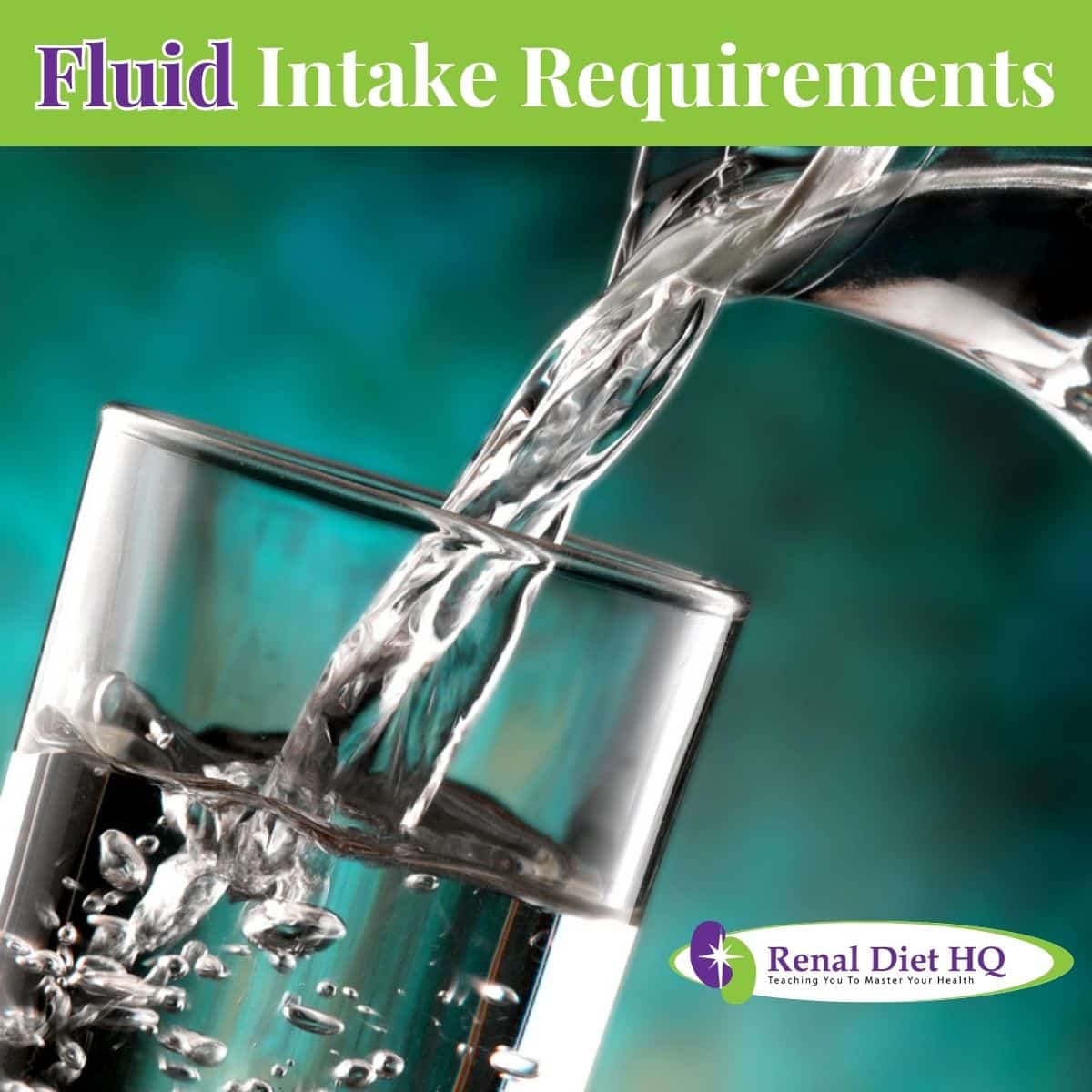
Foods To Avoid
Of course, it is very important to consider the foods that you should not eat on a renal diet. This is especially important for kidney disease because of how much impact your diet has on your steps to improving kidney health.
The foods and ingredients that are recommended to be omitted from your diet are chosen specifically because they have such a high impact on your kidney health.
Sodium, Potassium, and Phosphorus are the three most important ingredients to watch out for when making your omissions.
In the later stages of chronic kidney disease, you may also need to limit your intake of protein and fluids. Renal patients will often feel cravings for unhealthy foods like processed snacks or red meat. But when living with CKD, these meals can take away from our overall health in more ways than one.
Processed foods are full of sodium and refined sugars that can be detrimental to those with kidney disease.
They also lack essential vitamins, minerals, and other nutrients needed to support proper body functions.
Red meat contains high amounts of saturated fat which can raise cholesterol levels and put extra strain on your kidneys. Refined sugar should also be avoided because it causes spikes in blood glucose levels that could lead to diabetes or heart problems over time.
When facing the challenge of finding nutritious food choices while managing CKD, look towards plant-based sources such as fruits and vegetables, legumes and nuts, whole grains, dairy products low in fats, and lean proteins like fish or poultry.
These types of foods contain the necessary nutrition for healing the body along with maintaining healthy lifestyle habits during all stages of CKD.
Weight Management Considerations
Weight management is an important consideration for people with CKD. People who are overweight or obese can be at risk of developing CKD and those already impacted by it may have difficulty maintaining a healthy weight.
Therefore, proper nutrition and exercise plans should be tailored to the individual's needs.
Exercise is another vital component of managing weight while living with CKD. Light activity helps promote lower blood pressure levels, healthier blood vessels, reduces fatigue, and keeps joints flexible.
Low impact activities like walking, light swimming or cycling are encouraged along with stretching exercises that improve flexibility and balance.
As always, consulting your doctor before starting any new exercise program is strongly advised so they can tailor a plan specifically suited for you and your medical condition.
Living with CKD doesn't mean lacking energy or having difficulty losing weight—it just means knowing what works best for you when it comes to food choices and physical activity!
By understanding nutritional guidelines and engaging in exercise for ckd patients according to their specific health needs, individuals can still maintain a healthy lifestyle even amidst their ongoing battle against CKD.
Sodium Intake Restrictions
Now that we've discussed the importance of weight management considerations for those with CKD, let's turn our attention to sodium intake restrictions.
Sodium plays a vital role in dietary health, but too much dietary sodium can be detrimental to overall well being. It is important to understand and follow guidelines related to sodium intake when managing CKD.
For individuals living with stage 1-2 CKD, it is generally recommended that they limit their daily sodium consumption to no more than 2,300 mgs per day.
People with stage 3-5 CKD should always speak to their doctors about their recommended daily intake of sodium, as the recommended sodium level varies from one person to another.
There are many ways to reduce your dietary intake of sodium at home, such as using herbs or spices instead of salt to season food, and limiting condiments like ketchup or mustard, and reading food labels carefully.
Additionally, you should also consider the amount of hidden salt found in some everyday items like breads and cereals.
When dining out, look for menu items that are labeled ‘low-sodium’ – these will contain less than 140 milligrams of sodium per serving size - and avoid dishes with salty sauces or gravies. You can even check out this list of low sodium canned doods for CKD.
Request lighter dressings on salads and ask for meals prepared without added salt where possible. If you're unsure about how much salt an item contains then don't hesitate to ask your waiter or waitress for nutritional information from the kitchen staff.
By following these simple rules regarding dietary guidelines for those with CKD and monitoring one’s own individualized needs closely, it is entirely possible to maintain healthy levels of sodium while still enjoying your favorite foods!
Protein Intake Recommendations
For those experiencing CKD, protein intake recommendations are essential to ensure optimal health. It is important to understand the different stages of CKD and adjust your diet accordingly, as this will help you maintain a healthy weight and reduce symptoms.
A good example is breakfast for ckd stage 3, you can view what a typical breakfast would look like for someone with stage 3 CKD.
In general, CKD patients are advised to follow a low-protein diet. A plant-based diet is also typically recommended for all stages of CKD as it provides high quality protein without overworking the kidneys.
It is important to pay attention to which types of proteins you consume during each stage of CKD.
An individual in earlier stages may be able to eat higher amounts of animal proteins such as fish or lean meats. What fish is good for kidneys?
However, these should not make up the majority of one’s diet. For CKD advanced stages 3-5, you might further need to restrict your protein intake to no more than 0.8 grams per kilogram of your ideal body weight.
For renal patients, eating too much animal protein can put extra strain on an already weakened system, leading to further damage down the line.
These individuals should instead focus on incorporating plenty of nutrient-dense plant-based sources like legumes, nuts, seeds, and soy products into their meals. Doing so ensures they are getting their protein requirements while also consuming fiber and other vitamins and minerals necessary for overall health.
By understanding appropriate protein intake recommendations at each stage along with its associated benefits, those living with CKD can create diets that meet their needs while still enjoying food.
Vitamin And Mineral Supplements
Having discussed the importance of protein intake for all stages of CKD, it is time to move on to another essential part of the renal diet: vitamin and mineral supplements.
Without a doubt, these vital nutrients can make an unimaginable difference in the lives of those living with CKD!
The kidneys play such a significant role in our bodies when it comes to synthesizing vitamins and minerals; therefore, supplementation becomes even more important for individuals suffering from CKD.
Supplementation will help your body maintain its energy levels, cognitive function, and overall health.
Vitamin supplementation helps repair tissues, which are often damaged as a result of kidney failure. It also helps promote healthy digestion while aiding proper cell growth and development.
Mineral supplementation helps metabolize proteins and carbohydrates needed by the body.
- Minerals like calcium and magnesium support strong bones.
- Iron contributes to red blood cells production
- Zinc supports wound healing; copper aids nerve conduction speed
- Selenium acts as an antioxidant
- Chromium helps metabolize fats and carbohydrates efficiently
- Manganese boosts enzyme activity throughout our bodies.
Thus, supplementing with vitamins and minerals specific to one’s needs has been shown to be particularly beneficial for people living with CKD who require additional nutrition due to their decline in kidney function.
Ensuring that they benefit from enhanced immunity, improved muscle strength, balanced hormones, better metabolism rates as well as mental alertness. A comprehensive approach involving both dietary modifications along with effective supplementation provides powerful results!
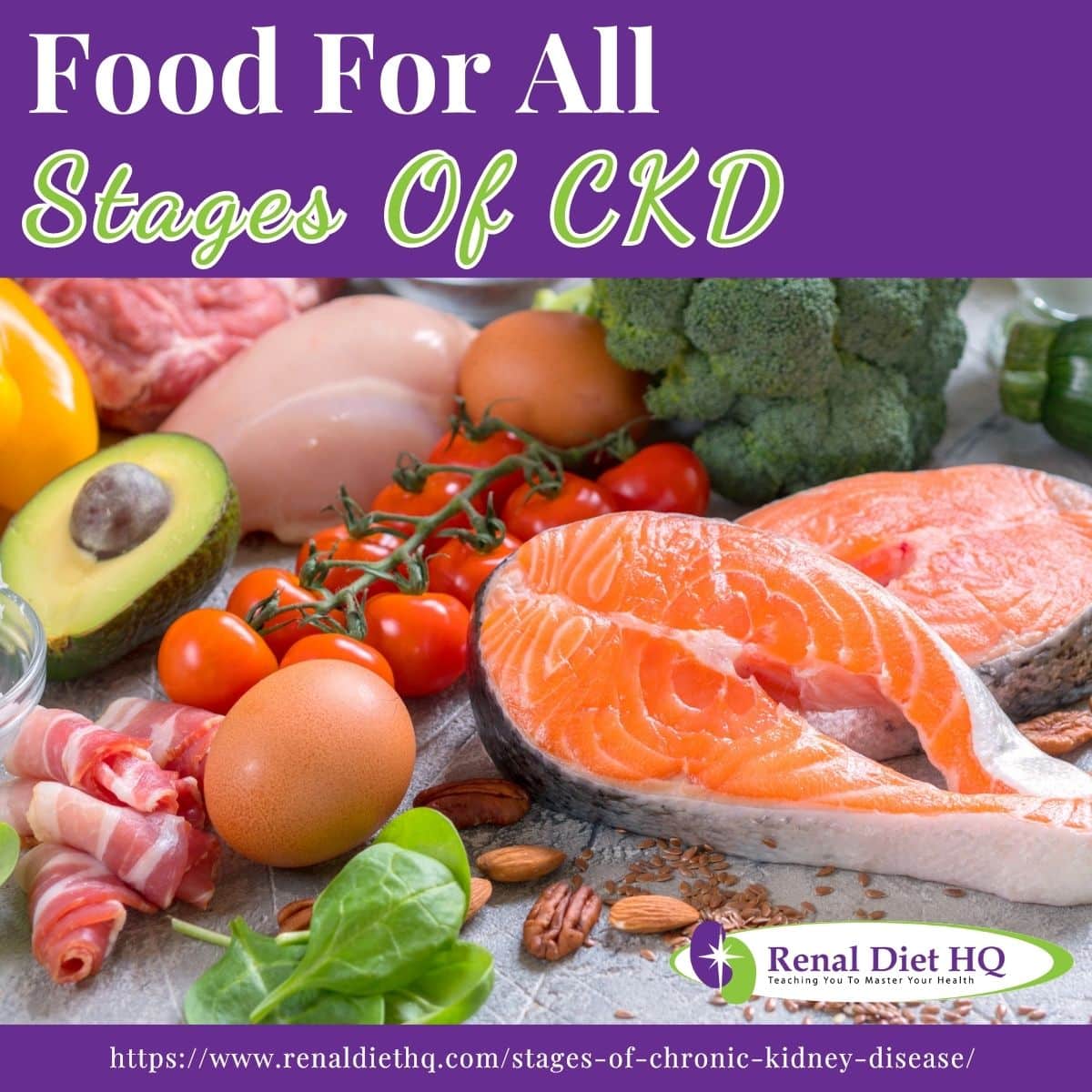
Benefits Of A Plant-Based Diet
A plant-based diet can be beneficial for people with all stages of CKD. Plant-based diets consist mainly of fruits, vegetables, whole grains, and legumes.
These foods are packed with vitamins, minerals, antioxidants and other essential nutrients that provide great health benefits to those following them.
Not only do these nutrient-dense foods help fight off chronic illnesses like CKD but they also reduce inflammation in the body which is essential for optimal functioning.
Plant-based diets offer a variety of potential benefits that make it an ideal dietary choice for many individuals living with CKD.
Studies have found that consuming a primarily plant-based diet helps to lower cholesterol levels and blood pressure, two major risk factors associated with CKD.
By reducing unhealthy fats and increasing fiber intake through plant-based meals, you will naturally support your body’s ability to regulate its own functions more effectively.
Furthermore, eating a largely plant-based diet can lead to improved overall energy levels as well due to the fact that your body does not have to overexert itself breaking down complex proteins from animal sources.
Finally, adopting a plant based lifestyle has been linked to improved mental well being too as increased fruit and vegetable consumption has been directly correlated with decreased rates of depression and anxiety symptoms over time.
Eating more plants gives rise to higher intakes of vital micronutrients such as magnesium which play an integral role in mood regulation and emotional balance.
Therefore by switching up our plate composition we can reap immense physical, emotional and spiritual rewards which may ultimately result in better management of even resistant cases of CKD.
How To Monitor Food Choices
Monitoring your food choices is a critical step for anyone living with CKD. To ensure that you're getting the right types of nutrition, it's essential to have an understanding of what foods are safe and beneficial for your health.
Here we'll lay out some key strategies for monitoring your diet as well as provide a helpful table outlining plant-based nutrition options.
One way to monitor your daily diet is by keeping track of what you eat in a journal or app.
Writing down every meal can help you get an accurate view of exactly how much (or little) each nutrient you consume throughout the day. If you discover any potential deficiencies or overabundance of certain nutrients, then make adjustments accordingly when planning meals ahead of time.
Keeping these tips in mind will help guide you towards healthier dietary choices which can ultimately lead to better overall nutritional status for those living with CKD.
With conscious effort and dedication, monitoring your food choices doesn't have to be overwhelming! Take a closer look at this chronic kidney disease diet food list to understand what your options are!
Using A Meal Plan To Manage Your Food
When it comes to managing food for all stages of CKD, creating a meal plan is essential. With the right strategy and guidance, you can successfully navigate your nutrition needs while keeping control over what you eat.
To make sure that your body gets the nutrients it needs, here are some tips and strategies for creating a meal plan for kidney disease.
First off, you should consult with a dietician or other health-care professional who specializes in CKD management when putting together a meal plan.
They will be able to provide advice tailored to your CKD stage and specific dietary requirements and help ensure that meals are balanced and nutrient-rich.
Additionally, they’ll be able to answer any questions about foods that may not be allowed due to medication being taken.
Another key part of a successful CKD meal plan is portion control. It’s important to know how much of each type of food group is necessary in order to meet daily nutritional goals while still controlling calorie intake.
Check out this 7 day meal plan for kidney disease to get an idea of what a CKD meal plan looks like.
A great way to achieve this goal is by using measuring cups or weighing out portions ahead of time so that meals stay consistent throughout the day and week. Planning ahead can also save valuable time during busy weeks when preparing meals quickly becomes overwhelming.
Meal planning doesn't have to mean sacrificing flavor or variety either; many delicious recipes can easily be adapted for those with CKD without compromising taste buds or nutrition values.
When cooking from scratch, substitute ingredients like low sodium vegetable broth recipe instead of salt or use fresh herbs instead of canned sauces as flavorful alternatives!
By taking advantage of these small changes in techniques and ingredients, anyone can create healthy yet tasty dishes specifically designed for their individual nutritional needs.
Frequently Asked Questions
CKD is a serious health condition that affects an estimated 14% of the U.S population, making it important for those with this diagnosis to have access to meal plans and recipes tailored specifically for their needs.
With CKD, eating enough nutritious food can be difficult, so many people worry about not getting all the nutrients they need in order to stay healthy. This article will discuss how you can make sure you're eating enough to maintain good health while managing your CKD.
The first step to creating a successful nutrition plan when living with CKD is understanding what foods are best for keeping your kidneys functioning properly.
Eating meals that are low in sodium and potassium as well as avoiding high-protein items like red meat or dairy products is key when cooking up kidney-friendly meals. You can try recipes like these kidney friendly meatballs or this kidney friendly pork chop recipe.
Additionally, incorporating fresh fruits and vegetables into your diet helps provide essential vitamins and minerals which can help keep energy levels up throughout the day.
Creating meal plans ahead of time is also helpful when trying to eat balanced meals while dealing with CKD.
Having a comprehensive CKD nutrition plan written out allows you to easily track what foods you’re consuming each day and if any adjustments need to be made depending on lab results or other factors such as fatigue or weight loss/gain. You can also pair it with this Comprehensive Healthy Renal Diet Grocery List Guide.
Meal planning also reduces stress because there's no guesswork involved; you know exactly what ingredients you'll need based on whatever recipe you decide to try out!
Furthermore, having a set grocery list makes shopping easier since all necessary foods are already accounted for before heading over to the supermarket.
By taking these steps towards better CKD meal planning, individuals who suffer from CKD can benefit greatly by being aware of what kinds of food work best for them and creating concrete strategies around buying groceries and preparing meals in advance.
This is all while staying nourished and energized throughout the course of their illness.
Nutrition plays an even more crucial role during pregnancy for those with CKD, as it helps ensure the health and well-being of both mother and baby.
Eating foods rich in vitamins and minerals, such as fruits and vegetables, lean proteins, low fat dairy products, whole grains and healthy fats like olive oil or avocado can help support a developing baby.
Additionally, pregnant women with CKD should avoid processed foods and limit intake of caffeine and salt.
It’s also beneficial for expecting mothers who are dealing with CKD to monitor their water intake throughout the day. Drinking fluids regularly will help reduce swelling caused by fluid retention, which is common among individuals suffering from this condition. Check out this list of fluids to hydrate with kidney disorder.
Furthermore, getting enough restful sleep each night is essential for anyone going through physical changes associated with pregnancy; this includes maintaining regular exercise habits where possible.
Taking steps like these can make all the difference in helping moms deliver happy, healthy babies into the world.
For those wondering if it is possible to lower their risk of developing CKD, the answer is yes. There are steps you can take to help prevent CKD and reduce your chances of developing this serious condition.
It's important to understand that no single factor determines whether or not someone will develop CKD, but certain lifestyle choices can make a difference. Eating healthily by avoiding processed foods, maintaining a healthy weight, and exercising regularly can all contribute towards lowering your risk of developing CKD.
Additionally, managing any existing medical conditions such as diabetes or high blood pressure is also extremely important. There is a renal diabetic diet that you can follow!
Finally, it’s essential to get regular checkups so that any changes in your kidneys can be monitored over time. This allows for early detection of any potential issues before they become more severe and difficult to manage.
Taking these steps now could mean making a significant impact on reducing your risk of developing CKD in the future.
When it comes to CKD, following a CKD-diet is essential for long-term health benefits. However, many people still may be wondering what the effects of this diet are in the long run?
Let’s take a closer look at some possible outcomes that could result from sticking with a CKD Diet plan over an extended period of time.
One effect is slower progression of kidney disease and improved overall health and well being due to balanced nutrition intake.
Following a CKD-diet helps ensure you get all the necessary vitamins, minerals, and other nutrients your body needs while avoiding foods that can further damage kidneys.
This increased nutritional balance has been linked to better heart health as well as decreased risk factors for diseases like diabetes and hypertension.
Another potential benefit of sticking to a CKD-diet is reduced discomfort associated with kidney problems.
Following a renal diet can help ease symptoms such as swelling or pain caused by excess fluid build up. In addition, focusing on healthy eating habits may also reduce fatigue which often accompanies chronic conditions like CKD.
The positive effects of following a CKD-diet should not be underestimated when considering how to manage one's own condition or supporting someone else living with this disease.
The key takeaway here is that following a tailored renal diet can have lasting impacts both physically and mentally - enabling individuals to live their best life despite any obstacles they might face along the way.
You Can Enjoy Your Favorite Delicious and Healthy Foods
Living with CKD can be challenging. But by following a kidney-friendly diet plan tailored to your stage of CKD, you can help manage its effects over time.
Eating meals that are rich in lean proteins, fruits, vegetables, whole grains, low-fat dairy products, and healthy fats is essential to maintaining good health.
Additionally, pregnant women should take special care to ensure they're getting enough nutrients for both themselves and their baby.
By taking proactive steps to adjust your eating habits now, you’ll not only lower your risk of developing CKD but also enjoy many long-term benefits such as improved overall energy levels and reduced fatigue.
Furthermore, incorporating certain foods into your diet—such as fish oil or omega-3 fatty acids—can help protect against inflammation associated with CKD while also providing additional nutritional support.
Overall, having a balanced approach when it comes to food choices is key if you want to maintain optimal health while living with CKD.
By making smart decisions about what you eat each day and being mindful of potential nutrient deficiencies that may arise from the condition itself, you can stay on top of your nutrition needs and keep feeling great!




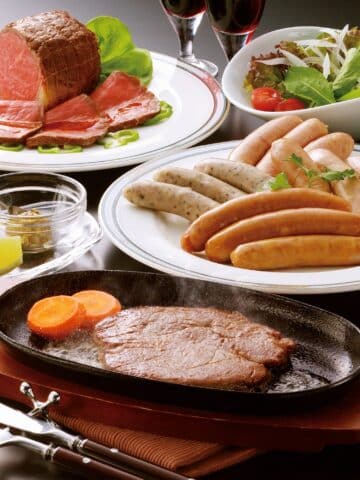

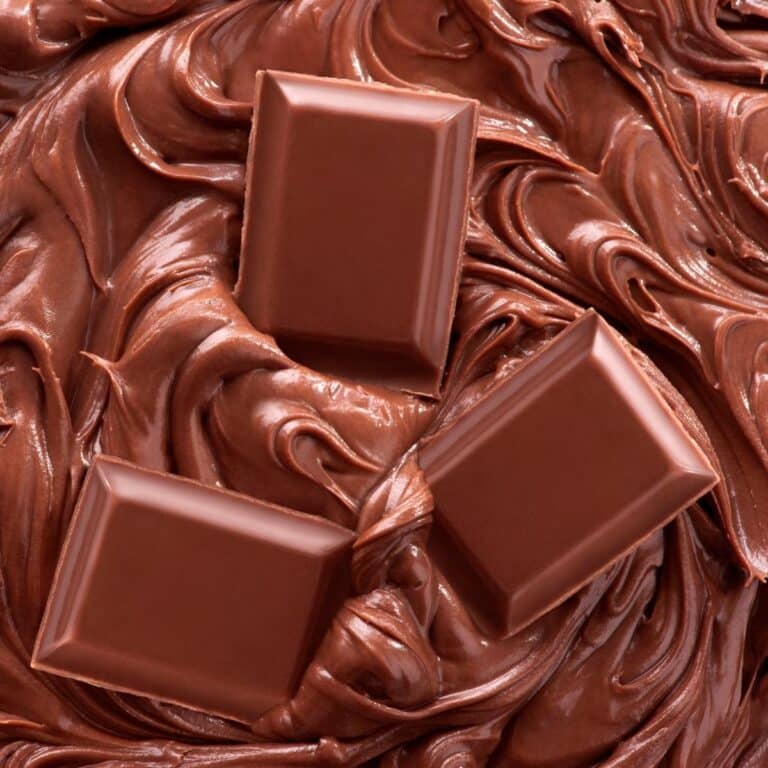

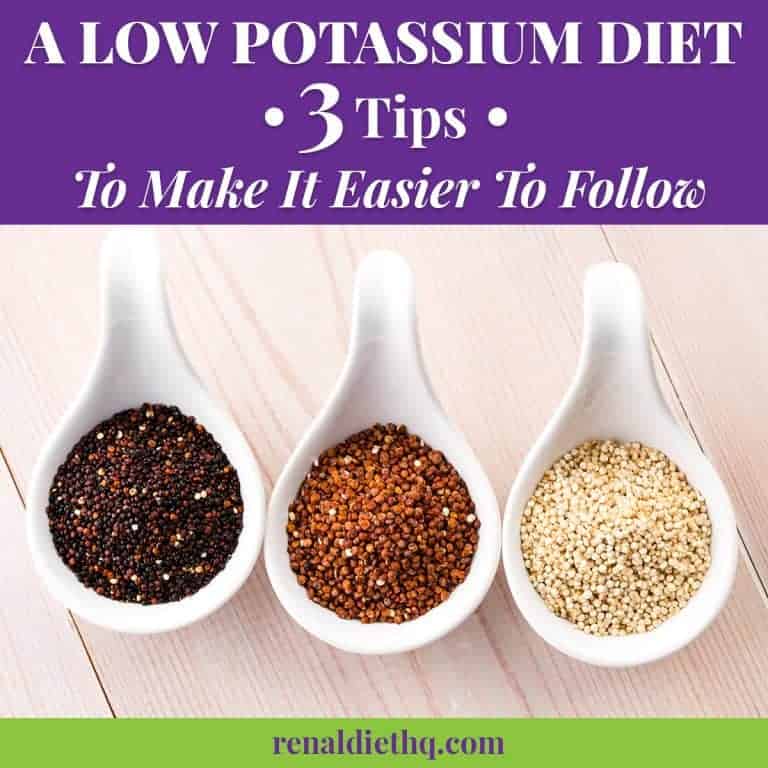
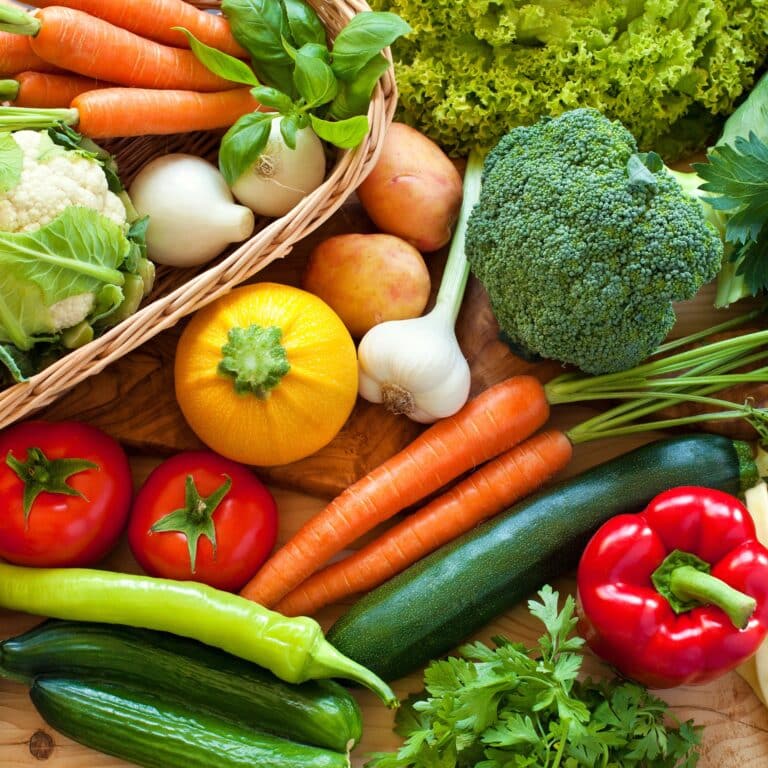




I have Stage 4 CKD and Peripheral Neuropathy. I am having a hard time with balancing my diet bc a food that is good for one may not be good for the other. I am down to trying to stay away from foods high in sodium, potassium & phosphorous. I nibble alot
I need help with knowing what foods are best for me to eat do you have any recipes that I could use I have stage 3 kidney disease
My mom is diabetic and has stage 3 kidney disease, and she is struggling with a diet that fits those combined restrictions. For example, beans are good for diabetics but far too high in potassium for CKD. Is there a meal plan or recipe book that outlines, not just a few recommended foods but, an actual long-term way for her to eat a healthy diet? All I can find are things that address one or the other condition. Thanks.